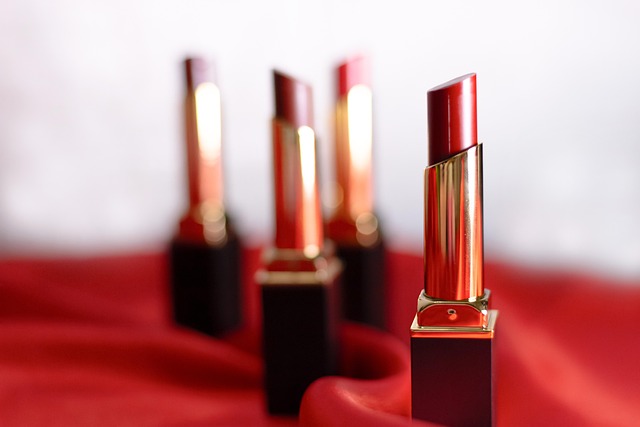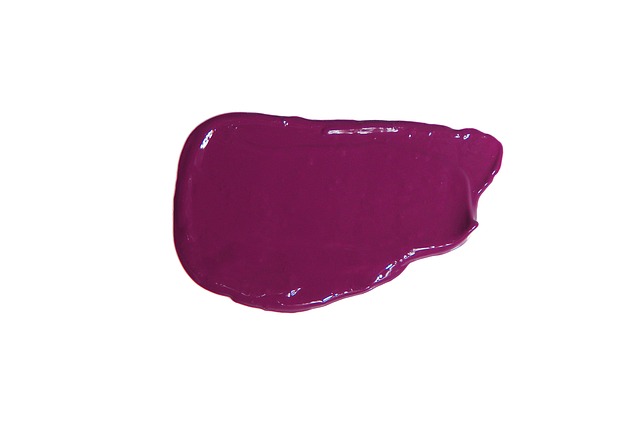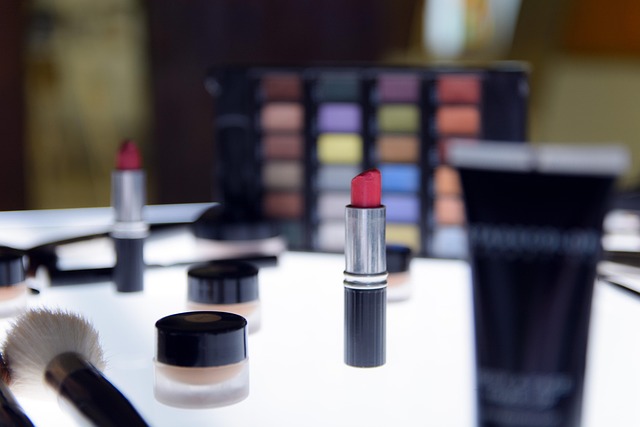The beauty industry is shifting towards sustainable and ethical practices, driven by consumer demand for natural alternatives. Vermouth beauty, with its rich history and herbal-infused nature, has gained popularity due to its anti-inflammatory and antioxidant properties. Plant-based lipsticks made from sustainable ingredients like vegetable oils, vermouth extracts, and essential oils offer long-lasting color and hydration while promoting healthier lips. This trend aligns with consumers' values for vibrant, natural beauty regimens. Despite the dominance of traditional lipsticks, plant-based options cater to sensitive lips and environmental considerations, with brands like Lush and Ilia leading the way in eco-friendly luxury cosmetics.
In recent years, the beauty industry has witnessed a surge in plant-based cosmetics, with lipsticks leading the charge. This shift towards natural, sustainable alternatives is not just a trend but a revolution, driven by consumers demanding safer, healthier products. Vermouth, a traditional herb-infused wine, emerges as a key ingredient, offering rich, vibrant hues and numerous skin-loving benefits. Discover how this ancient elixir contributes to modern plant-based lipsticks, their unique formulations, advantages over traditional options, and top brand recommendations for achieving gorgeous, sustainable lip color.
- The Rise of Plant-Based Cosmetics: A New Trend in the Beauty Industry
- Understanding Vermouth: Its History and Benefits for Skin and Lips
- How Plant-Based Lipsticks Are Made: A Comprehensive Look at Ingredients
- Advantages and Disadvantages: Comparing Plant-Based to Traditional Lipstick
- Top Picks and Brand Recommendations for Sustainable Lip Color
The Rise of Plant-Based Cosmetics: A New Trend in the Beauty Industry

The beauty industry is witnessing a significant shift towards plant-based cosmetics, with consumers increasingly demanding sustainable and ethical alternatives to traditional products. This rising trend in vermouth beauty is not just a passing fad but a conscious move by both brands and customers alike to reduce the environmental impact of their makeup routines. The market for natural, organic, and cruelty-free cosmetics has been booming, offering a wide array of options that cater to diverse consumer preferences.
Plant-based lipsticks, in particular, have gained immense popularity due to their long-lasting colors, moisturizing properties, and lack of harsh chemicals. These innovative products are crafted from sustainable ingredients like plant extracts, essential oils, and natural waxes, ensuring a safe and gentle experience for the skin. As consumers become more conscious about the potential toxins present in conventional cosmetics, the allure of plant-based alternatives is undeniable. The industry’s response to this trend has been remarkable, with numerous brands now offering vegan, gluten-free, and organic lipsticks, making sustainable beauty accessible and desirable for all.
Understanding Vermouth: Its History and Benefits for Skin and Lips

Vermouth, a herbal-infused wine with a rich history dating back centuries, has long been celebrated for its distinctive flavor and numerous health benefits. Originally crafted as a medicine in ancient times, vermouth’s popularity grew during the 18th and 19th centuries when apothecaries and physicians recognized its healing properties. Today, vermouth beauty is making waves in the skincare and cosmetic industries, with many natural lipsticks and balms incorporating this versatile ingredient.
Beyond adding a hint of flavor to beverages, vermouth’s primary benefits lie in its anti-inflammatory and antioxidant properties. These attributes make it an excellent choice for soothing sensitive skin and promoting lip health. Rich in vitamins and minerals, vermouth can help nourish and hydrate lips, leaving them feeling soft and supple. Its natural ability to protect against environmental stressors further enhances its appeal, making vermouth a valuable addition to any plant-based lipstick or skincare routine.
How Plant-Based Lipsticks Are Made: A Comprehensive Look at Ingredients

Plant-based lipsticks are crafted with a meticulous blend of natural ingredients, shunning synthetic substances often found in traditional cosmetics. The process begins with careful selection of vegetable oils, waxes, and pigments sourced from sustainable and ethical practices. These raw materials are then combined and heated to create a smooth, creamy texture suitable for application on the lips. One unique ingredient that sets plant-based lipsticks apart is vermouth beauty extracts—byproducts of the wine industry that contribute to enhancing color and providing antioxidants.
The formula is further enhanced with essential oils for fragrance, ensuring a pleasant user experience without artificial chemicals. This comprehensive approach not only delivers a stunning, long-lasting shade but also promotes healthier lips by moisturizing and nourishing them. By choosing plant-based options, consumers can make informed decisions that align with their values while embracing a vibrant, natural beauty regimen.
Advantages and Disadvantages: Comparing Plant-Based to Traditional Lipstick

Plant-based lipsticks are gaining popularity among those who prioritize both beauty and sustainability. One of the key advantages is their gentle formula, free from harsh chemicals often found in traditional lipstick. This makes them ideal for sensitive lips, reducing dryness and irritation. Moreover, plant-based options tend to offer a wide range of natural shades, catering to various skin tones and personal styles. They are also biodegradable, contributing to environmental conservation, a significant concern for many consumers today. Vermouth beauty products often contain rich, nourishing ingredients like cocoa butter and jojoba oil, ensuring long-lasting wear while keeping lips hydrated.
However, traditional lipsticks have their allure and advantages too. They typically provide a more intense color payoff and better staying power, especially those formulated with high-quality pigments and waxes. Additionally, many classic lipstick shades are widely available and easily replaceable, catering to fast-paced lifestyles. While plant-based alternatives are making significant strides, some consumers might prefer the consistent performance of conventional lipsticks. Choosing between the two ultimately depends on individual preferences, environmental concerns, and the specific beauty needs of each user.
Top Picks and Brand Recommendations for Sustainable Lip Color

When it comes to sustainable lip color options, several brands stand out for their commitment to both natural ingredients and eco-friendly practices. One popular choice is Vermouth Beauty, known for its wide range of plant-based lipsticks with vibrant hues derived from natural pigments. Their products are free from parabens, cruelties, and synthetic fragrances, appealing to consumers seeking ethical beauty solutions.
Other notable brands include Lush, celebrated for its fresh, handmade cosmetics, including their iconic lip balms and tints, and Ilia, which offers a range of long-lasting, high-performance lipsticks with organic ingredients. Both options cater to those looking for luxurious, natural alternatives without compromising on color or quality. These top picks showcase the growing trend of vermouth beauty, proving that going green can be as stylish as it is sustainable.
The rise of plant-based cosmetics, including lipsticks made with vermouth, marks a significant shift in the beauty industry towards sustainability. By harnessing the skin and lip-nourishing properties of natural ingredients, these products offer an ethical alternative to traditional lipstick. After exploring their history, manufacturing processes, advantages, and disadvantages, as well as top brand recommendations, it’s clear that plant-based lipsticks are not just a trend but a game-changer in vermouth beauty, ensuring both radiance and responsibility.
